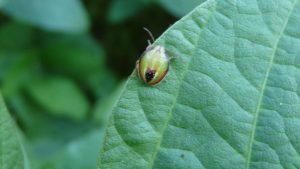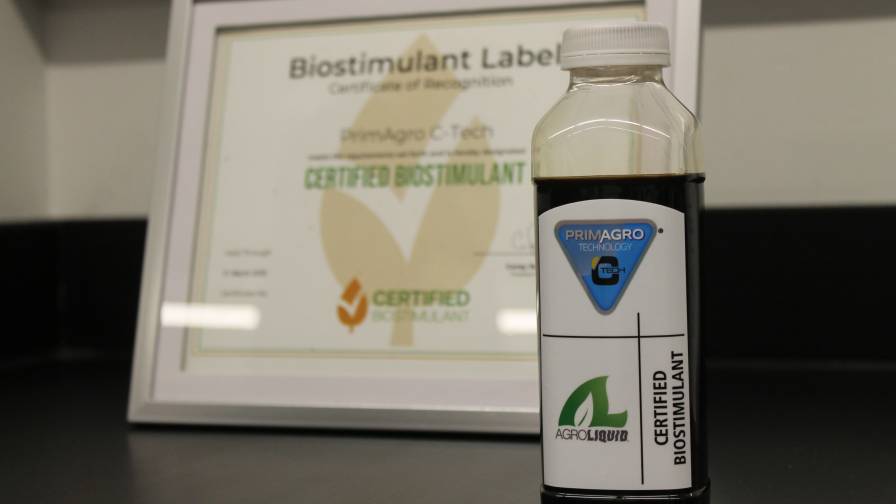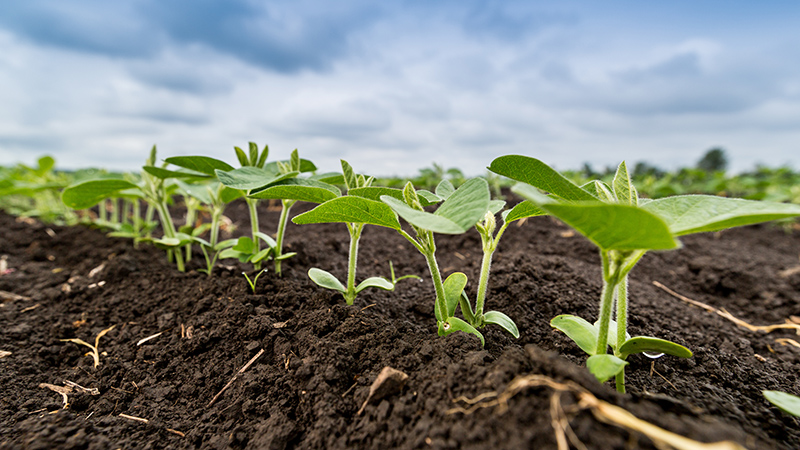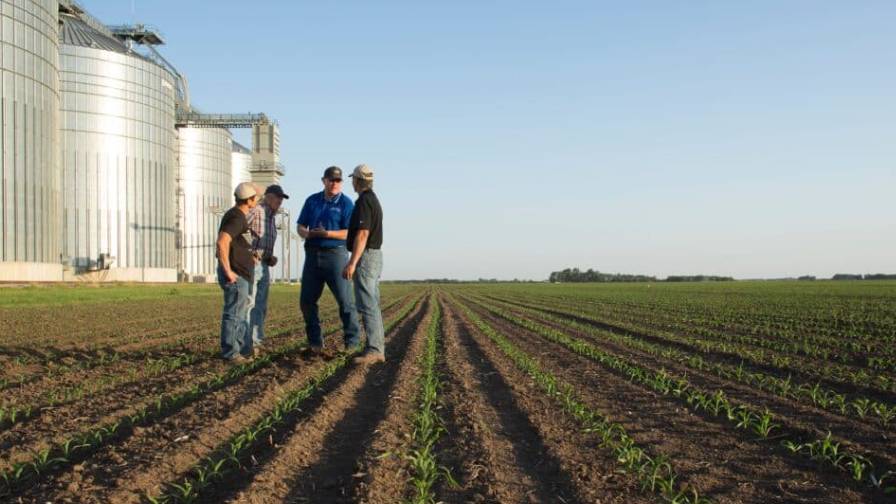Experts: Mild Winter, Early Planting Will Increase Soybean Insect Threat
Higher than average temperatures this past winter affected much of the nation, especially the South and Midwest. The National Centers for Environmental Information reported that February was the second warmest ever on record in the U.S., and because of this, Syngenta agronomists and university entomologists are warning growers of expected heavy insect pressure this season.

Redbanded stinkbug on soybean. Photo credit: Thomas County Ag, University of Georgia Cooperative Extension
Dr. Gus Lorenz, extension entomologist with the University of Arkansas, recently reported the warmer winter is likely to result in high overwintering kudzu bug and stink bug populations due to lower mortality rates. Last year, kudzu bugs reached damaging levels in Arkansas for the first time. Redbanded stink bugs have also become a more aggressive threat to soybean yields in the South.
In the Midwest, Dr. Kelley Tilmon, pest specialist at The Ohio State University Extension, is calling for increased stink bug scouting in soybean fields. In her recent webinar, “Insect Trends in 2016,” Tilmon said the extension service received only an average number of stink bug reports during the 2016 season, but when harvest hit, they began receiving an abundance of stink bug-damaged soybean samples. Tilmon attributed this issue to ineffective scouting.
Stink bugs aren’t the only pests with potential to cause problems in the Midwest. Kelly Estes, agricultural pest survey coordinator with the University of Illinois, also named kudzu bugs as a potential threat she and her colleagues will be monitoring for in the region this year.
“Based on 2016 reports, I expect these pests to reach economic thresholds earlier and in a wider geography than in previous years. Soybean growers need to be prepared with a proven treatment plan in mind,” said John Koenig, technical insecticide lead at Syngenta. “We recommend growers contact their local Syngenta representatives to determine whether Endigo ZC insecticide or Besiege insecticide is the best solution for the spectrum of insects harming their operation.”






